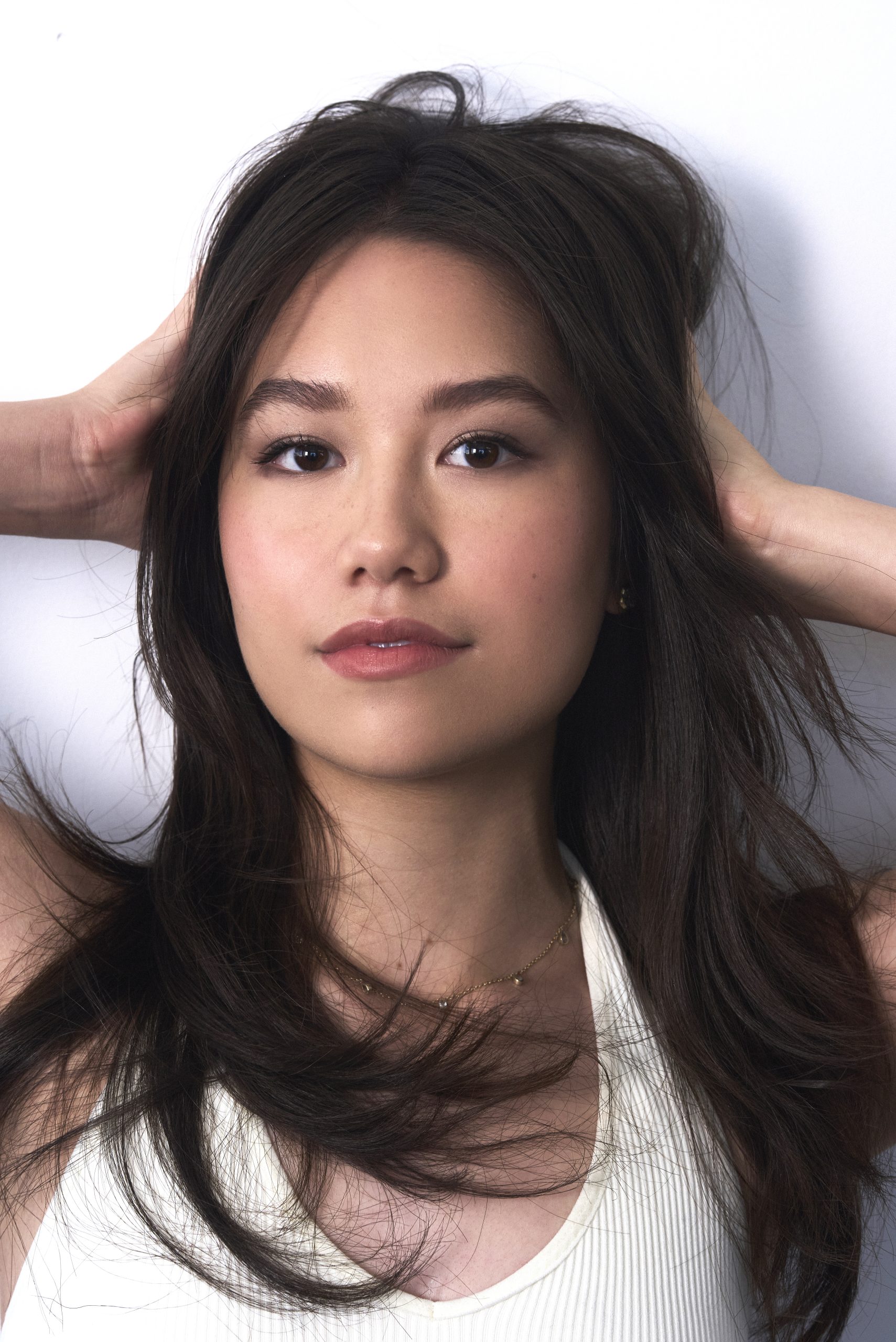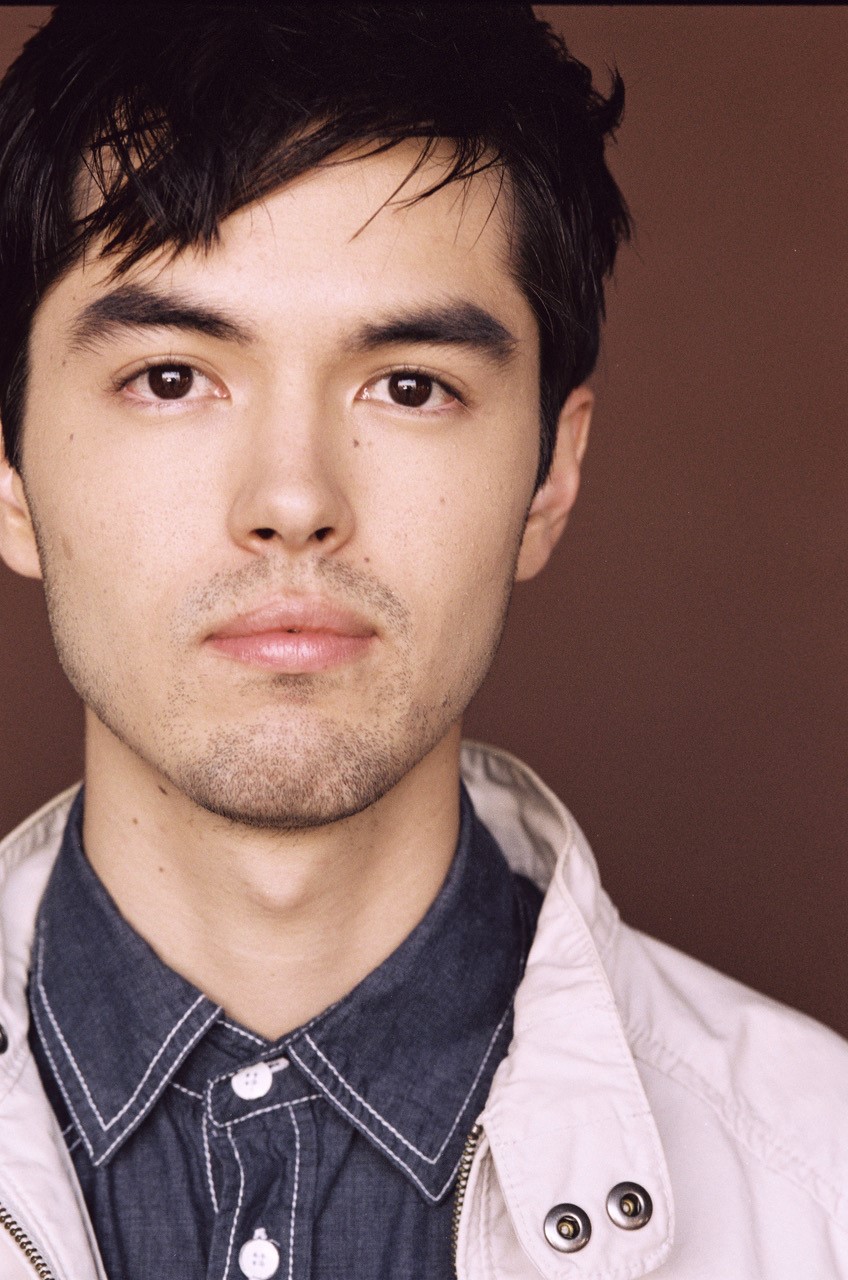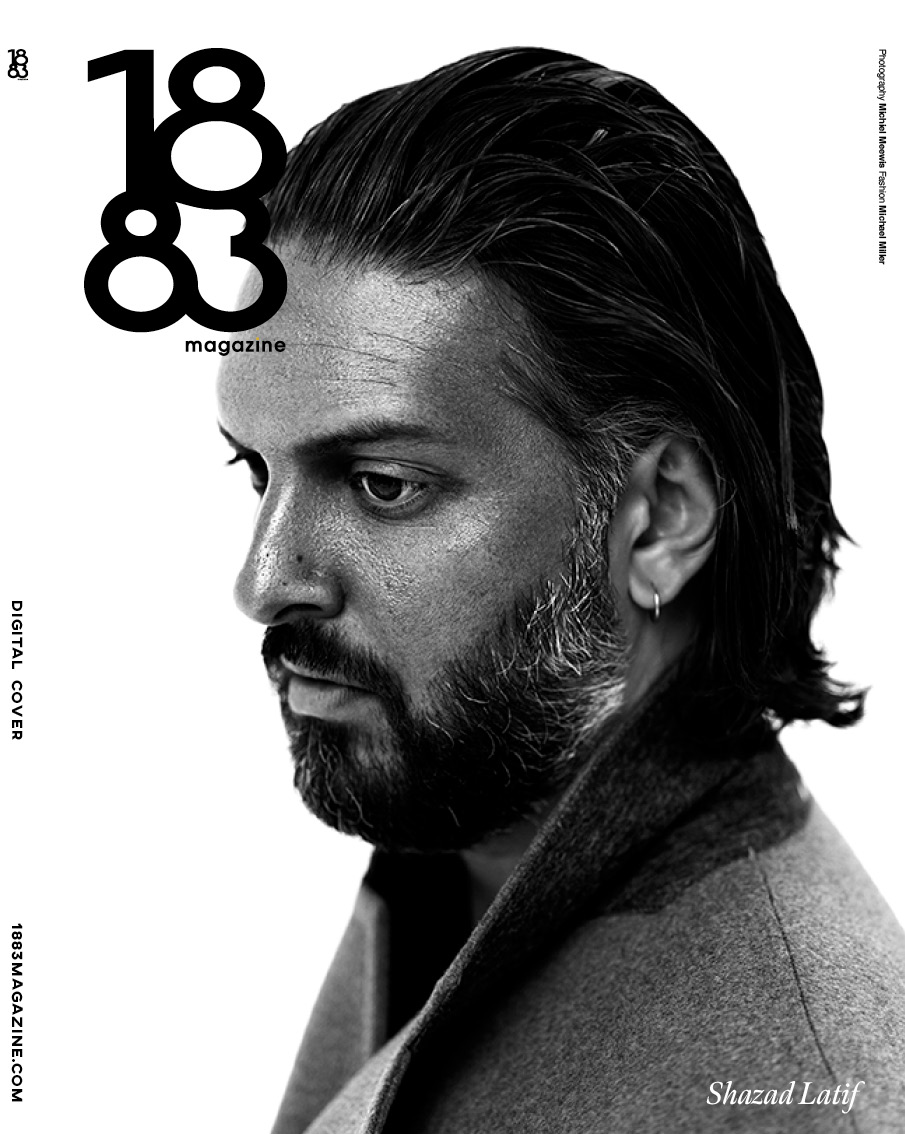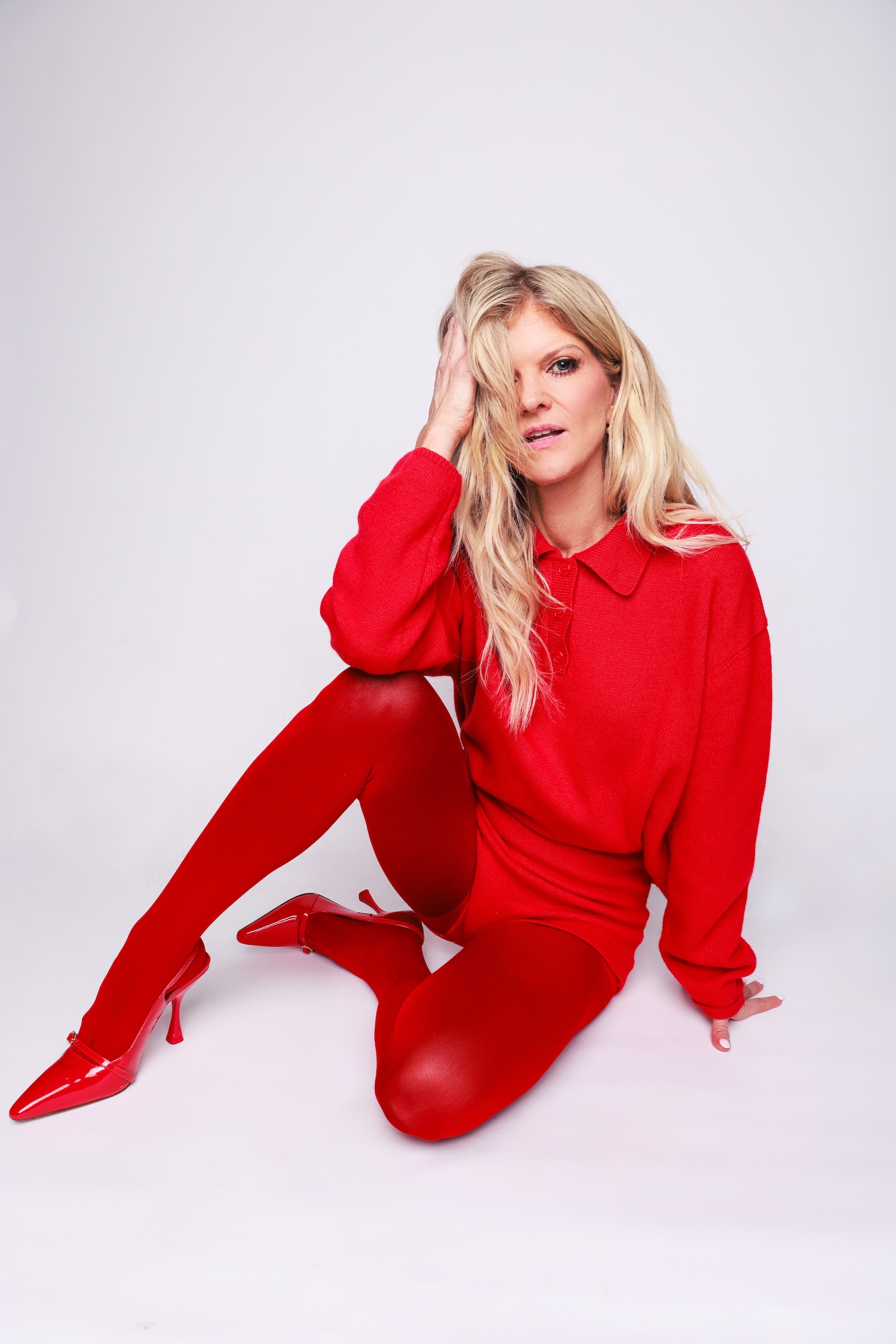Misia Butler’s career as an actor is arguably his destiny. Coming out as trans as a teenager, his position on an acting course through charity Gendered Intelligence only came through because someone else dropped out last minute. A pure twist of fate. Fast forward a few years later, and that course led him down a path to a string of roles on shows ranging from Casualty to The Bastard Son and The Devil Himself, he’s landed the role of a lifetime as Caeneus in Netflix’s new series Kaos – a character in Greek Mythology whose story centres around their female-to-male transition.
Caeneus also happens to be a character Misia has been obsessed with since school, when a teacher approached him with a book on his tale. Misia believes the teacher ‘knew what she was doing’ when she introduced him to this character, considered one of the first trans literary heroes ever put to paper. Much like the themes of the show, it seems Misia’s fate has always been tied to the Greek mythological role.
Speaking to 1883, Misia opens up about his career so far, all things Kaos, trans representation on screen, and what the future holds for him.
How do you feel now Kaos is finally coming out?
I’ve already watched it three times! [laughs] I mean, I probably witter on about this to literally everyone I’d speak to, but I’ve been an ancient Greek myths nerd for as long as I can remember, and knowing about this show… I literally remember the press release being sent to me by every single one of my friends on Instagram. So for the longest time it’s been in my consciousness, and to be a part of it felt insane.
Seeing the finished product, I think I remember seeing the first trailer, and I had to be on the tube when it was released, and I was trying to get Northern Line Wi-Fi to work, and just crying on the tube. It was just so overwhelming to be part of this. It’s exactly the same feeling seeing it all the way through. I’m watching it as a fan, and then seeing myself pop up, going ‘Oh! I’m in this! What?!’
Your career started off in a classically British way – the iconic Doctors and Casualty – but what was the role that made you think ‘I’m really getting into acting now’?
Really good question. I think when I was about 18, I got cast in this tour, this play, and I think it really shifted my view. It was the first time I did a professional play, and it really felt like acting, you know, I think, to a certain degree, theatre feels a little bit more like acting than screens sometimes. But I was going to go to university to study classics, actually, and then I got this job in Scarborough doing another play, and it was a two-hander called Jess and Joe Forever. It was just beautiful. It was beautifully written, and it really just felt like the opportunity to just like completely be absorbed in a character.
I love doing the screen work I’ve done, and I think honestly Kaos feels like the pinnacle of a career, and it’s slightly scary to say that, at the age and stage I’m at with my career. I’m slightly worried about anything else topping it as an experience. But I think, yeah, Jess and Joe felt… the most actory.
What would you consider the personal difference between acting on stage versus acting on screen?
It’s really nuanced. I think it’s so much more of a specific technical skill, being on-screen, because being on stage, you get to play and really kind of see something through over an extended storyline. I say that, but there’s so much stagecraft, and maybe I’ve just been a bit kind of, what’s the word, kind of naturalistic in the plays that I’ve done. But it feels like with screen, because you’re dropped in different points, different parts of the story at any given moment, there’s so much going on around you, and you’re really just a small part of a much bigger whole. I think it’s such a technical skill to stay focused and to be absorbed in the scene that you’re doing. It’s been an amazing process getting to properly explore that with Kaos, because it was such a long shoot.
How long was the shoot in its entirety?
I mean, I say it was a long shoot, I don’t know how that compares to other ones. It’s the longest one I’ve done. It was six months, and then we had reshoots the next year. So it kind of, just over the course of my journey on it, it was about just a bit over a year of shooting.
One of my favourite questions to ask, and I think you’ve kind of answered it a little bit already, is what made you decide to become an actor? You were already landing roles at like, the age of 16/17, so it seems you have wanted this forever.
Yeah. I mean, honestly, I remember finding a notebook that I tried to journaling – but I’m terrible at journaling because I give up after a few passages – but I found one, and I was probably about 13 or something, and I was like choosing GCSEs or something. I felt like I had to choose what my life was going to be. I was like ‘all I want to be as an actor or writer’, and at that point, I had no concept of being that, because I think I was always the weird kid. They didn’t know how to cast me at school, or clubs and things. So I just never really was doing that sort of role, that kind of made you seem like you could go to have that as a career. Casualty kind of really came out of nowhere for me, and there’s so many reasons I shouldn’t have got that role, but it was very fateful, and that fate feels like something I’ve been chasing ever since.
How old were you when you got Casualty?
I think I was 15 when I actually got the role, and I think I turned 16 before I did it.
So, it was always on the cards for you! Did you do any sort of professional training?
Well, for Casualty, I did this sort of course that this amazing charity, Gendered Intelligence, ran alongside Royal Central School of Speech and Drama. That was a training course for trans actors specifically. At that time, there really wasn’t very much representation, and it just got accessibility and people in to see these people act, and I got to be part of that. I mean, another reason I shouldn’t have got that role is because I didn’t initially get on that course. I was on the waiting list and someone dropped out. So it was very fateful. But apart from that, I’ve had no official training.

The discussion of fate playing a hand, that does sort of line in with Kaos quite a lot. What were your thoughts on playing this role? A lot of people have noted Caeneus as one of the first ever representations of trans men, which in itself is proof positive that transitioning and trans people have existed for millennia. What were your thoughts on the character, before you even played him?
Honestly, I’ve been obsessed with him for such a long time! [laughs] I remember learning about him in school. I remember the moment one of my teachers told me about him, and I just felt forever indebted to her.
I mean, I think she kind of knew what she was doing by introducing me to this character, and it just made me go off and explore so many more characters in these stories. There’s a whole bunch of them. Gender-bending and experiencing gender in so many different ways was really just so present in these ancient myths, and I think was only sanitised and made accessible to more traditional Western, Victorian audiences over the course of translation through the millennia. So what we probably had, you know, thousands of years ago might have been a lot queerer than what we have now!
But learning about this role, I just remember being like, this is insane. This is a character that I’ve been obsessed with forever. I’ve written multiple stories about him, trying to make my own adaptations, and then thanks to Charlie Covell, who’s adapting this for Netflix, he’s a lead of a massive ensemble of Greek characters. It’s just an utter dream.
Any mythological role seems to come with its own weight because it has been around for so long. So for something to be that personal to you must have this extra feeling to it. What was your thought on the historical story of Caeneus, and how did that influence your take on him?
I think I always viewed him as a bit of a superhero for me. He’s so much more confident and powerful, than I think I’ve ever really felt. I think that what Charlie has done really beautifully with this story arc, and I think with a lot of this show, is that his power doesn’t have to be a very hyper-masculine, very physical power, but he’s still incredibly powerful on the show.I think that there’s a real character strength in him that I wanted to find, and what I felt was really present in those original myths.
One of the things I always remember, which was the introduction that my teacher gave me, was the story of Caeneus fighting some centaurs and them being really, essentially just transphobic, just calling him a woman and saying, ‘You can’t fight us men, think about how you were born’, all that sort of thing… and he just stabs them in the face [laughs]. There’s not even a line back. He doesn’t even have to say anything. He’s just like, ‘Oh, I’m not supposed to be here, am I? Well, take this’. He’s just so utterly confident in his sense of self, and I think that really comes through with Caneus in the show. He goes through a lot of stuff, and his transness is very relevant to his story, but I think there’s just a really natural, strong sense of self that I just find really, really beautiful.
What are your thoughts on trans-male representation on screen? Trans representation, at least until recently, seemed to be far more prominent with trans females, how are you currently finding the balance?
I think there are some really big key players. Elliot Page [from The Umbrella Academy] coming out was a massive step in representation. I think a lot of other cultural icons have done the same. I think that you’re absolutely right.
There’s a really strange kind of nuanced balance of different kinds of discrimination, I suppose, within the trans community. The non-binary aspect of the trans community, that’s even more nuanced. Within the more binary sides, trans-feminine discrimination tends to be quite violent and outward and can really kind of be quite brutal at times. That definitely happens to trans men too, but I think the primary thing we see with trans men, especially in representation, is neglect. It’s probably an infantilization, quite often, a desexualization and just non-inclusion, and you kind of get the opposite, a hyper-representation, hyper sexualization, and fear-mongering around more trans-feminine people.
This is such a nuanced conversation, because no one has it better or worse. But it’s been beautiful, kind of seeing so many more stories coming up, and there’s an amazing feature film that I saw called Mutt with Lío Mehiel. You see it popping up all the time now, and it makes me feel a lot more comfortable and safe, because I know that I’m part of a community that is being seen, not just a person who represents an entire community. I will never be able to do that. I’m one person, and my experience will be so different to those of my peers.
What do you hope people will see in Caeneus and take away from the show, whatever part of the gender spectrum they’re on?
With the way that Charlie’s written it, I think one of the beauties of Caeneus is that he’s a dark horse of a hero. He’s a sort of understated, very unlikely hero, and I think his heroism is much more subtle than we often see, but it’s still really celebrated in the show. I think the beauty of seeing someone just be very strong, whilst not having to shout about it, is something that I find really, really beautiful about this story.
Can you tell me a little bit about life on the set of Kaos? The cast is insane, but it’s also split into different worlds. I personally found the underworld really beautiful with the striking monochrome colour palette. Is there a particular set that you love? Is there anyone that you particularly got close to on set?
I got close to everyone I worked with. I’ve listed all the various things that make this job a perfect job for me, but also how beautiful the people were. I’ve used the word beautiful quite a lot in this [laughs]. But it sums up my experience, because I mean so many of my closest friends now are people on set, even strangely, people I never really worked with, we just overlapped and in our shoot times and had an amazing time.
I might be biased, but I am obsessed with the way that the underworld is shot, too. I just think it’s so specific, and I remember learning how it was going to be shot, and all that black and white, monochrome, brutalism of all the sets and things, and just being so excited, because I think it does something visually that is quite new and unique, and I think that it really helps to distinguish the tone of all these different places.
Although I think the amazing, vibrant, almost Baz Luhrman’s Romeo and Juliet-ness of Earth and Olympus is so striking. You find yourself so engrossed in the vividness of these worlds, and then to be like starkly brought into the black and white of the underworld.
Were there any scenes that you found particularly difficult to film?
Oh, very good question. I think. I mean, there’s the technical difficulties, and then there’s the reaching of, like, certain aspects. There were some really poignant moments with Caeneus’s relationship with his mum. I think it’s funny, I’ve done a lot of stories that have very close relationships with mums. I don’t know if that’s a trans masculine thing, or just a young man thing that they write that often, but it feels like there’s a lot of mum trauma going on. [laughs]
What I think is incredible about the way that the story with this is written, is that trauma sort of exists in it, but it’s also played with, and the expectations played with quite a lot. Caeneus’s relationship with his mum is so complex. We’d shot a lot, it’d been quite a while before I actually met my mum, Amanda, who played my mum, who is incredible. And I’d been reading these scripts and forming these relationships, and Charlie had actually sent me some stills that Amanda had already shot, so I had an image of who my mum was, and there were these amazing drawings that they had all over my character’s wall. So I had such an intense relationship with this image of this woman, who I hadn’t met yet. Then on the River Leith, there’s a moment where Caeneus sees his mum and everything, sort of all this waiting, these 10 years of wanting answers, kind of crashes down on him. It was a very complicated technical set as well, because we were dealing with thousands of extras and a river and so much but, and it was incredible just holding focus. I just found that so difficult but so rewarding.
What would you like to do next? Casualty and Doctors sort of excluded, your roles tend to be very fantasy driven. Was that a deliberate move on your part, career wise? Or do you have an area you’d like to explore in the future?
I think it was definitely something I was very drawn to. I’ve always been a bit of a kind of magical realism, fantasy obsessive. I was one of those Tumblr kids! We’re all becoming Tumblr adults now, but, yeah, I think it’s just always been something I’m drawn to. I think what I’m finding is how technical those aspects can be, the more magical aspects. Having my three headed dog was incredible. I loved him, but having three heads and having to do all the magic around that was quite distracting and tough at times. So I think it would be amazing to just really explore some quite personal stories in a more real, traditional, grounded, and a much more naturalistic setting. I’d just love the ability to dive into that sort of meatiness.
If I could give you your dream role right now, what would that look like?
Strangely, something that came to mind is this movie that I definitely can’t be cast in, because the character’s like 11. Tomboy by Céline Sciamma, it’s just a beautiful coming-of-age story where this kid basically moves to a new place and everyone takes her as a boy, and she doesn’t really correct anyone. It’s just an exploration of gender and gender presentation and autonomy and all that sort of stuff. I’d love the beauty of how it’s shot, but also the naturalism that I think all the actors find in it. That kind of story would be so satisfying.
Kaos is out now on Netflix.
Interview Tilly Pearce
Photography Pip
Styling Nathan Henry
Grooming Sven Bayerbach at Carol Hayes Management using Daimon Barber
Styling Assistants Stoyan Chuchuranov and Rachel Allison





